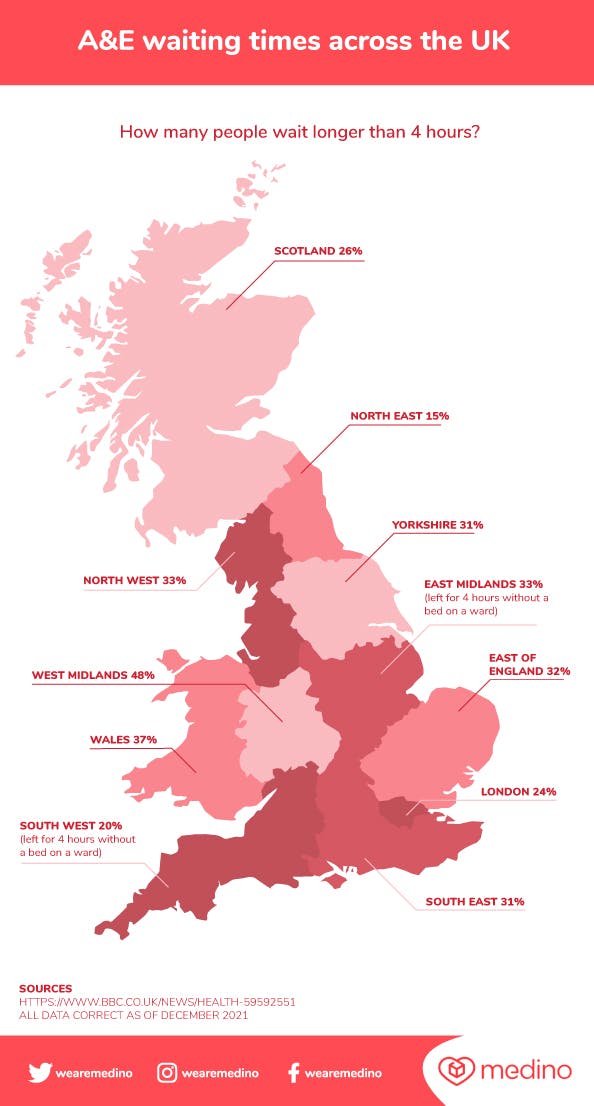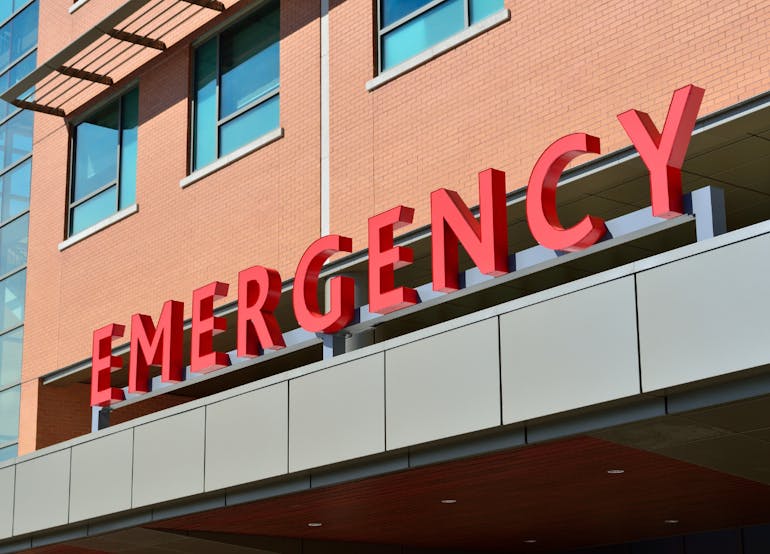A&E waiting times across the UK: How many people have to wait over 4 hours?
Reviewed and fact-checked by Giulia Guerrini, Superintendent Pharmacist. Read our editorial policy to see how we create informative, accurate content.
As an online pharmacy, we know how important it is that you keep on top of your maintaining good health. However, we’re fully aware that waiting times in A&E can be painfully long and we’re a very impatient nation, so we’ve taken a deep dive into the data to find out the areas in the UK that have the longest, and shortest, A&E wait times.
If you’re from the West Midlands, you’re likely to be waiting for a long time. We found that 48% of patients from A&E across the West Midlands had to wait over four hours to be seen in A&E. Patients from the North East are much less likely to suffer a long wait time, with only 15% of patients having to wait over four hours to be seen.
Check out how many people had to wait over four hours to be seen in A&E below:
- West Midlands – 48%
- Wales – 37%
- East Midlands – 33% (are left for 4 hours without a bed on a ward)
- North West – 33%
- East of England – 32%
- South East – 31%
- Yorkshire – 31%
- Scotland – 26%
- London – 24%
- South West – 20% (are left for 4 hours without a bed on a ward)
- North East – 15%

Have you visited A&E over the last year? Did you stick out the wait? We spoke to over 2,200 UK residents and found that of those who visited A&E in the last year, 42% decided to go home before they were seen because of the wait time.
Even though people have left A&E because of the wait times, 54% of people surveyed said that they booked an appointment with their GP instead.
A long wait time is a worrying find – especially if it puts people off from getting help, or means they end up leaving A&E before they can be seen. If you’re at A&E, it should be because you believe or know your health issue is serious, so it’s crucial people get seen as quickly as possible and aren’t put off going when they need to.
It’s important to remember that A&E shouldn’t be your first port of call. You should consider speaking to your GP, your local pharmacist, or even calling 111 before visiting A&E as they’ll be able to provide you with the help or guidance you need – unless, of course, it’s a life-threatening emergency.

